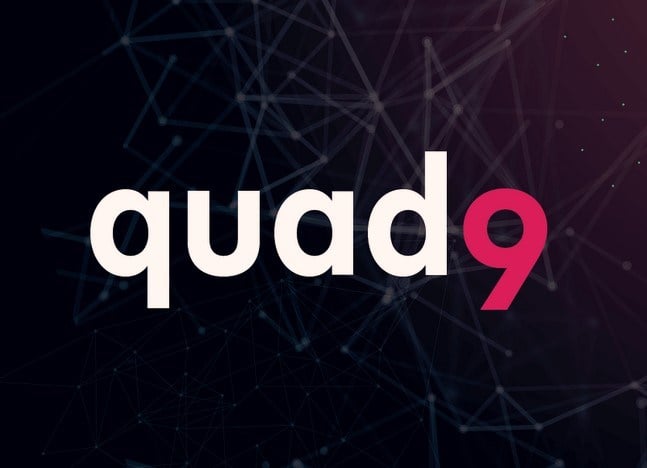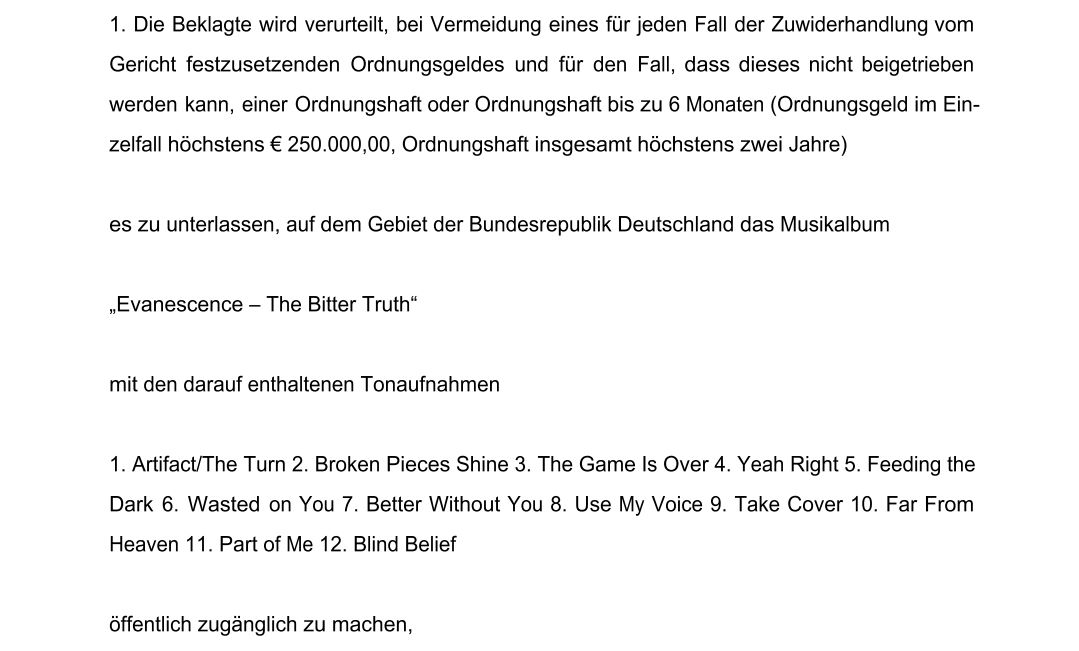 In 2021, Sony Music obtained an injunction ordering DNS resolver Quad9 to block the popular pirate site Canna.to.
In 2021, Sony Music obtained an injunction ordering DNS resolver Quad9 to block the popular pirate site Canna.to.
The injunction, issued by the District Court of Hamburg, required the Swiss DNS resolver to block its users from accessing the site to prevent the distribution of pirated copies of Evanescence’s album “The Bitter Truth“.
Quad9 Appeals Site Blocking Injunction
The Quad9 Foundation fiercely opposed the injunction. The not-for-profit foundation submitted an appeal to the Court hoping to overturn the blocking order, arguing that the decision set a dangerous precedent.
The DNS resolver stressed that it doesn’t condone piracy. However, it believes that enforcing blocking measures through third-party intermediaries, that don’t host any content, is a step too far.
This initial objection failed; the Regional Court in Hamburg upheld the blocking injunction last December. However, this was only a preliminary proceeding and Quad9 promised to continue the legal battle, warning of a broad impact on the Internet ecosystem.
Sony Files Main Proceeding
After Sony’s preliminary victory, the music company initiated a main proceeding at the Leipzig court. This was the next step in the legal process and allowed both sides to provide more evidence and expert opinions.
Sony, for example, referenced earlier jurisprudence where Germany’s Federal Court ruled that services such as YouTube can be held liable for copyright infringement if they fail to properly respond to copyright holder complaints.
Quad9’s expert, Prof. Dr. Ruth Janal, contested this line of reasoning, noting that, under EU law, DNS resolvers shouldn’t be treated in the same fashion as platforms that actually host content
Quad9 is more akin to a mere conduit service than a hosting provider, Prof. Janal countered. Courts could instead require Quad9 to take action through a “no-fault” injunction, a process that’s already used in ISP blocking orders. In those cases, however, the intermediary isn’t held liable for pirating users.
Court Confirms DNS Blocking Requirement
After hearing both sides, the Regional Court of Leipzig ultimately handed a win to Sony. This means that Quad9 is required to block the music piracy site canna.to globally. If not, those responsible face a hefty fine, or even a prison sentence.
“The defendant is liable as a perpetrator because it makes its DNS resolver available to Internet users and, through this, it refers to the canna.to service with the infringing download offers relating to the music album in dispute,” the Court writes.
Judge Werner argues that Quad9 should have taken action when the copyright holder alerted it to a pirated copy of the Evanescence album. Its intentional failure to act makes the DNS resolver liable.

In its defense, Quad9 warned that blocking measures have a significant impact on its system architecture and performance. The Court wasn’t receptive to this argument, as the DNS resolver already actively blocks malware as one of its features.
Thus far, Quad9 has blocked Canna.to only for German users. However, the court order suggests that a global blocking order is reasonable and warranted, which is in line with Sony Music’s demands.
“It would also be harmless if, in accordance with the defendant’s argument, websites were blocked globally and irrespective of a specific jurisdiction for all Internet users who use the defendant’s DNS resolver.
“Even worldwide, no legitimate interest of Internet users in accessing this website with obviously exclusively illegal offers is apparent, so that the question of overblocking does not arise,” Judge Werner adds.
‘Absurdly Extreme’
Quad9 is disappointed with the verdict. According to the non-profit foundation, the court order opens the door to widespread global blocking orders that go far beyond the jurisdiction they’re issued in.
“Quad9 believes this is an exceptionally dangerous precedent that could lead to future global-reaching commercialized and political censorship if DNS blocking is applied globally without geographic limitations to certain jurisdictions.”
In addition, the DNS resolver believes that the Court mistakenly labels the service as a liable ‘wrongdoer’. Expanding liability to seemingly neutral services that don’t host any content is “absurdly extreme”, Quad9 notes.
“To put this into perspective, applying wrongdoer liability in this setting is akin to charging a pen manufacturer with fraud because a stranger forged documents while using the manufacturer’s writing utensil,” the Foundation writes.
Quad9 Continues to Fight
According to Quad9, Sony Music hand-picked a relatively small player with limited means, to obtain a favorable precedent. However, Quad9 isn’t giving up the fight. The company will appeal the judgment at the Dresden Court of Appeal, with help from the German Society for Freedom Rights (GFF).
GFF project coordinator Felix Reda, who previously served as a Member of the European Parliament for the Pirate Party, believes that the Leipzig Regional Court has made a glaring error of judgment.
“It treats Quad9 as if the service itself were committing copyright infringement, even though it merely resolves a website name into an IP address,” Reda tells TorrentFreak.
“If one follows this reasoning, the copyright liability of completely neutral infrastructure services like Quad9 would be even stricter than that of social networks, whose copyright liability was extended by the controversial EU Copyright Directive.”
In common with Prof. Janal, Reda stresses that Quad9 should receive similar treatment as ISPs, instead of equating the service to a hosting provider.
“The Digital Services Act makes it unequivocally clear that the liability rules for Internet access providers apply to DNS services. We are confident that this misinterpretation of European and German legal principles will be overturned by the Court of Appeals,” he notes.
For now, Quad9 says it will comply with the court order. This means that it will block access to the Canna.to domain. Whether this will make much of a difference is unknown, as the site moved to the Canna-Power.to domain name a while ago.
—
A copy of the Regional Court of Leipzig’s order is available here (German, pdf) and a translated English copy can be found here (pdf)
From: TF, for the latest news on copyright battles, piracy and more.
0 Commentaires